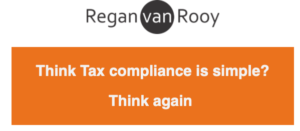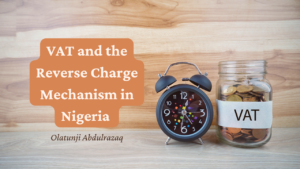Confusion regarding interpretation
- DLA Cliffe Dekker Hofmeyr
- South Africa
- January 23 2015
An interesting judgment was handed down in the Tax Court on 9 December 2014 in the matter of AB CC v The Commissioner of the South African Revenue Service (VAT case number 1005, as yet unreported).
In this matter, a registered vendor for purposes of Value-added Tax (VAT), made certain supplies to an entity, C, entailing the rectification and rehabilitation, as well as the construction of new, low-cost housing. The vendor levied VAT at the standard rate of 14{780f53c297e2c008074d23b865a0ce0b35a4f08852d8e1e49466a5a902c4e44e} in respect of the supplies, received payment from C, and paid the VAT to the South African Revenue Service (SARS).
The vendor subsequently realised that the services supplied by it could be zero-rated in terms of s11(2)(s) of the Value-added Tax Act, No 89 of 1991 (VAT Act). The vendor submitted revised returns, resulting in a refund owed to it. However, SARS did not accept the revised returns and assessed the vendor for the full amount. The vendor objected to the assessments, but the objection was disallowed by SARS, who maintained that the services did not fall within the scope of s11(2)(s) of the VAT Act. The vendor then appealed to the Tax Court.
Section 11(2(s) of the VAT Act, as read with s8(23) of the VAT Act, as they read at the time, provided that taxable supplies of goods or services made by a vendor, for which payment is made in terms of the Housing Subsidy Scheme referred to in s3(5)(a) of the Housing Act, No 107 of 1997 (Housing Act), shall be deemed to be a supply of services to a public authority or municipality, and shall be zero-rated.
The vendor submitted that the payments were made in terms of the Housing Subsidy Scheme, and that the zero rate applied, while SARS argued that the payments were not made in terms of the Housing Subsidy Scheme, and that the standard rate applied.
The main difficulty was that the term ‘Housing Subsidy Scheme’ was neither defined in the VAT Act nor in the Housing Act. The Tax Court therefore had to determine the meaning of the words through other sources, and applying the rules of statutory interpretation.
Firstly, the court noted that the agreement in place between C and the vendor specifically recorded that “[the vendor] acknowledges that the services rendered in accordance with the provisions of the Housing Subsidy Scheme are zero rated for Value Added Tax purposes”. The court took this to be “an official declaration by a government department and a policy maker to the taxpayer”.
Secondly, certain correspondence between C and the vendor made reference to ‘subsidy houses’, ‘housing subsidy beneficiary’ and ‘housing subsidy’.
Thirdly, the court looked at the mechanisms contained in the National Housing Code, and it transpired that there were additional housing subsidy mechanisms that existed that were not initially taken into account by SARS.
Fourthly, the various witnesses for SARS were not consistent in their understanding of what the words ‘Housing Subsidy Scheme’ mean.
The court noted that it “is not an ideal situation for a taxpayer to seek clarity from more than one source outside the Act in order to determine the VAT rate applicable”.
It further appears that the court also applied the contra fiscum rule in that it quoted from Badenhorstv CIR 1955 (2) SA 207 (N) 215:
“In the case of ambiguity arising during the interpretation of fiscal legislation, the contra fiscum rule will be applicable. Should a taxing statutory provision reveal an ambiguity, the ambiguous provision must be interpreted in a manner that favours a taxpayer. When a taxing provision is reasonably capable of two constructions, the court will adopt the construction that imposes a smaller burden on the taxpayer.”
After taking into account all the relevant facts and circumstances, the court accepted the vendor’s version to the effect that the payment for the services were made in terms of a Housing Subsidy Scheme, and specifically as provided for in the National Housing Scheme, despite there being no consistent definition for the words “Housing Subsidy Scheme”.
The court did however find that SARS’s grounds of assessment were not unreasonable in light of the uncertainty in respect of the interpretation of the legislation, and ordered each party to pay its own costs.






